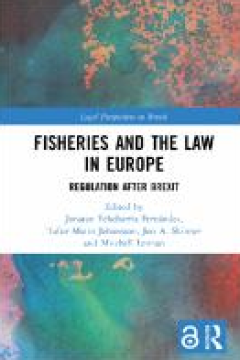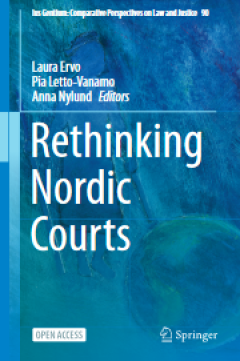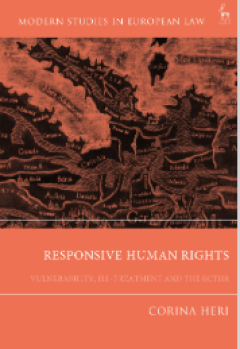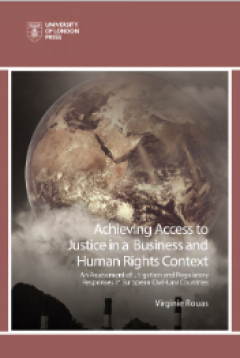Ditapis dengan

Protecting the Rights of People with Autism in the Fields of Education and Em…
The Council of Europe and the European Union (EU) have not developed ad hoc legal rules or hard law instruments specifically aimed at protecting the rights of people with autism. At European regional level, the special situation and needs of individuals with autism find recognition and protection within the wider legal framework concerning the rights of persons with disabilities as well as with…
- Edisi
- -
- ISBN/ISSN
- 978-3-319-13791-9
- Deskripsi Fisik
- 202 hlm.
- Judul Seri
- -
- No. Panggil
- -

Fisheries and the Law in Europe: Regulation After Brexit
Examining fisheries, Brexit, the Trade and Cooperation Agreement (TCA) and its consequences for the Fishing Industry in the UK and the EU, this book explores key issues within the complex topic of fisheries after Brexit. Assessing the new fishing relationship between the UK and the EU, which will continue to develop over the next decade, it provides an important study of the state of fisheries …
- Edisi
- -
- ISBN/ISSN
- 978-1-003-25248-1
- Deskripsi Fisik
- 171 hlm.
- Judul Seri
- -
- No. Panggil
- -

Rethinking Nordic Courts
This open access book examines whether a distinctly Nordic procedural or court culture exists and what the hallmarks of that culture are. Do Nordic courts and court proceedings share a distinct set of ideas and values that in combination constitute the core of a regional legal culture? How do Europeanisation, privatisation, diversification and digitisation influence courts and court proceedings…
- Edisi
- -
- ISBN/ISSN
- 978-3-030-74851-7
- Deskripsi Fisik
- 304 hlm.
- Judul Seri
- -
- No. Panggil
- -

Responsive Human Rights: Vulnerability, Ill-treatment and the ECtHR
Who is a vulnerable person in human rights law? This important book assesses the treatment of vulnerability by the European Court of Human Rights, an area that has been surprisingly under explored by European human rights law to date. It explores legal-philosophical understandings of the topic, providing a theoretical framework that can be used when examining the question. Not confining itself …
- Edisi
- -
- ISBN/ISSN
- 978-1-50994-125-4
- Deskripsi Fisik
- 261 hlm.
- Judul Seri
- -
- No. Panggil
- -

Achieving Access to Justice in a Business and Human Rights Context: An Assess…
Achieving Access to Justice in a Business and Human Rights Context explores the interplay between access to justice and business and human rights- a growing area of international human rights law- in European civil-law countries. Multinational enterprises (MNEs) can contribute to economic prosperity and social development in the countries where they operate. At the same time, their activities m…
- Edisi
- -
- ISBN/ISSN
- 978-1-911507-19-2
- Deskripsi Fisik
- 422 hlm.
- Judul Seri
- -
- No. Panggil
- -
 Karya Umum
Karya Umum  Filsafat
Filsafat  Agama
Agama  Ilmu-ilmu Sosial
Ilmu-ilmu Sosial  Bahasa
Bahasa  Ilmu-ilmu Murni
Ilmu-ilmu Murni  Ilmu-ilmu Terapan
Ilmu-ilmu Terapan  Kesenian, Hiburan, dan Olahraga
Kesenian, Hiburan, dan Olahraga  Kesusastraan
Kesusastraan  Geografi dan Sejarah
Geografi dan Sejarah